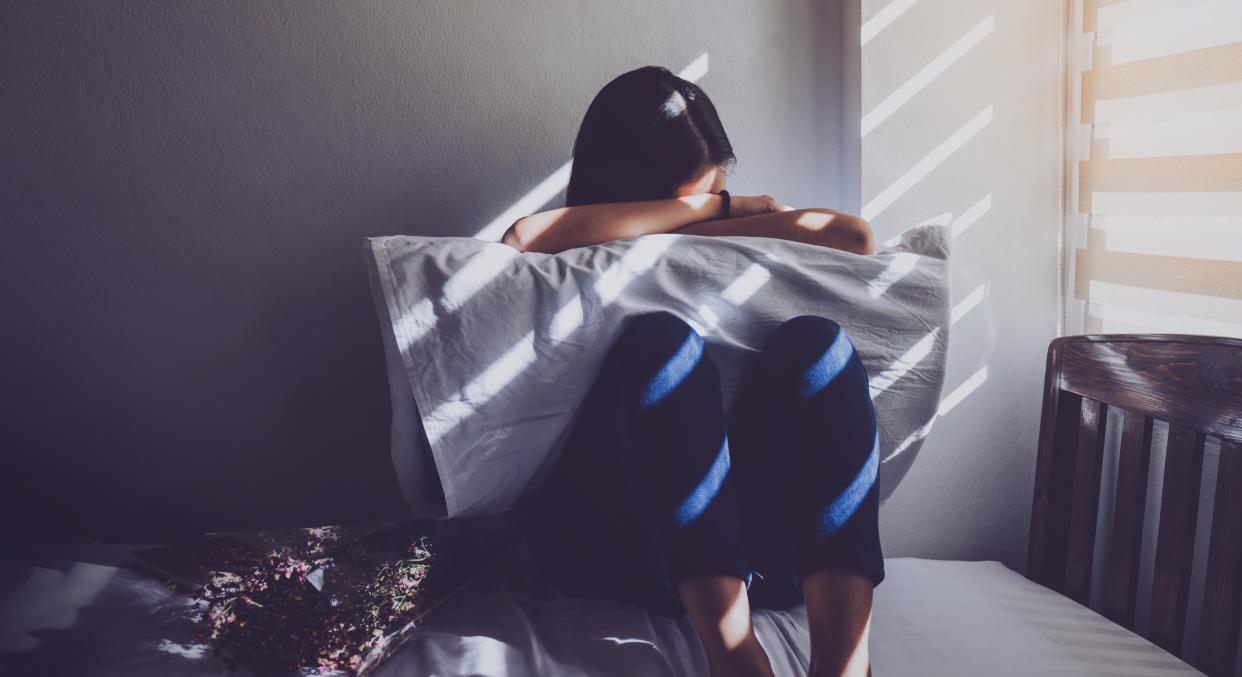One third of UK women are suffering from loneliness in lockdown, says new study

Social distancing has impacted all quarters of the UK - but a new study has suggested women are being more adversely affected by the coronavirus lockdown.
Researchers found that a third of women are suffering from loneliness as a result of restrictions put in place to contain the pandemic.
Scientists at the University of Essex discovered that social isolation is the reason females in Britain are currently experiencing greater problems.
Lisa Spantig and Ben Etheridge, economists at the Institute for Social and Economic Research, found that the proportion of people experiencing at least one mental health issue has increased in both genders.
Read more: Victoria Beckham says wearing tight clothes was 'a sign of insecurity'
However, for women this has jumped from 11% to 27%, while in men it has risen from 7% to 18%.
The researchers told The Guardian that as well as economic factors and the extra burden of childcare and domestic chores, the way the lockdown has impacted female social relationships is likely to have been an important factor.
Etheridge said: “Women are more likely to report multiple numbers of close friends.”
Therefore, that - until recently - people were prevented from meeting members of a different household was likely to have led to a “decline in mental wellbeing”.
Read more: Mum launches domestic abuse awareness programme after escaping violent ex-boyfriend
Etheridge added: “It’s well documented that women have drawn the short straw on several different fronts.”
The study revealed that more than a third of women - or 34% - said that they now sometimes felt lonely, compared to 23% of men.
Similarly, 11% of women said they now often felt lonely, in contrast to just 6% of men.
It also discovered that females under 30 were among those whose mental health was most impacted, while men between the ages of 50 and 69 were least affected.
Read more: Fearne Cotton reveals she suffered 'imposter syndrome' while presenting Top of the Pops
Those with fewer friends before the pandemic have also seen their mental health suffer less from social distancing policies.
It comes as a recent survey showed that more people are using exercise to manage their mental health.
Research conducted by Sport England, to coincide with Mental Health Awareness Week, found that 63% of people across the first six weeks of lockdown were staying active to look after their minds.
It discovered that people are turning to fitness as a result of the restrictions on movement since late March.
These included working out at home, running in the park and walking or cycling to the shops for essentials.
Initially, the government allowed people to leave their homes once a day for local activity, and earlier last month sanctioned unlimited exercise.
The survey also showed that over time, concerns about leaving home have eased - with 60% worried about this in the first fortnight, and a reduced 47% in week six of lockdown.


